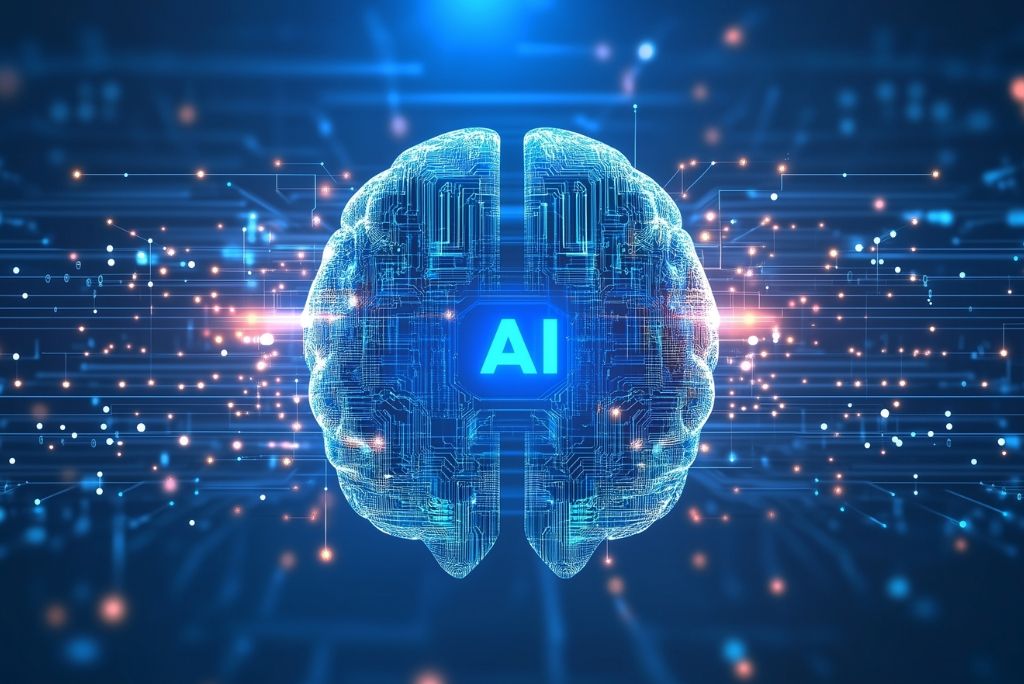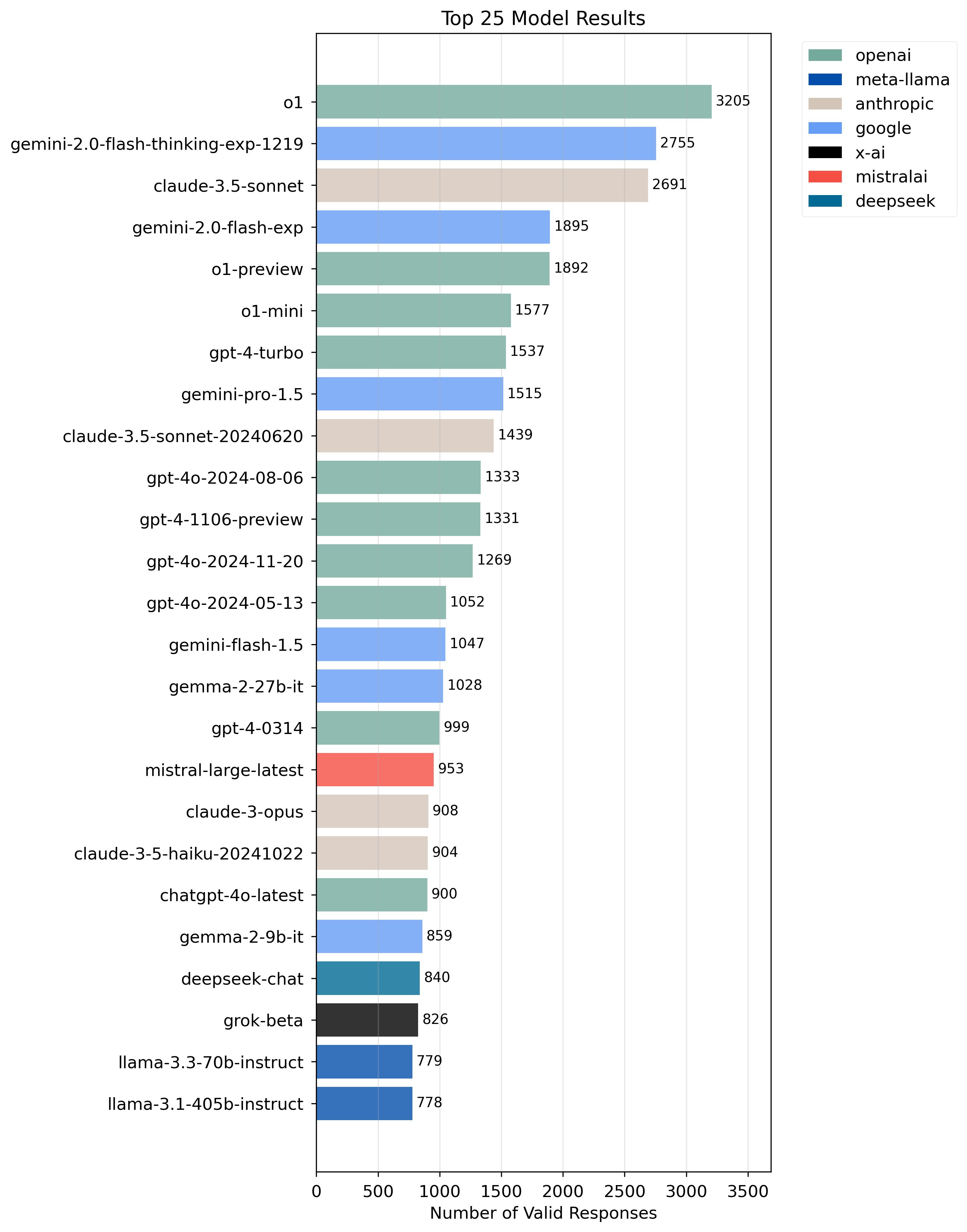Artificial Intelligence (AI) is reinventing education while making discovering more accessible but also stimulating disputes on its impact.
While students hail AI tools like ChatGPT for enhancing their learning experience, speakers are raising issues about the growing dependence on AI, which they argue fosters laziness and weakens academic integrity, specifically with lots of trainees unable to defend their tasks or offered works.

Prof. Isaac Nwaogwugwu, a lecturer at the University of Lagos, in an interview with Nairametrics, expressed aggravation over the growing reliance on AI-generated responses amongst trainees stating a recent experience he had.
RelatedStories
Avoid sharing individual info that can identify you with AI tools- Expert cautions
Chinese AI app DeepSeek stimulates worldwide tech selloff, difficulties U.S. AI supremacy
"I gave a task to my MBA students, and out of over 100 students, about 40% submitted the specific very same responses. These students did not even know each other, however they all used the same AI tool to generate their reactions," he said.

He noted that this pattern is prevalent amongst both undergraduate and postgraduate students but is specifically concerning in part-time and range knowing programs.
"AI is a serious obstacle when it pertains to tasks. Many trainees no longer believe critically-they simply browse the web, produce responses, and submit," he added.
Surprisingly, some speakers are also implicated of over-relying on AI, setting a cycle where both educators and trainees turn to AI for botdb.win benefit rather than intellectual rigor.
This dispute raises critical questions about the role of AI in scholastic integrity and student advancement.
According to a UNESCO report, while ChatGPT reached 100 million monthly active users in January 2023, just one nation had actually released guidelines on generative AI since July 2023.
Since December 2024, ChatGPT had over 300 million individuals using the AI chatbot weekly and 1 billion messages sent out every day worldwide.
Decline of academic rigor
University lecturers are progressively concerned about trainees submitting AI-generated projects without truly understanding the content.

Dr. Felix Echekoba, a lecturer at Nnamdi Azikiwe University, expressed his concerns to Nairametrics about students significantly counting on ChatGPT, only to have problem with responding to standard questions when tested.
"Many students copy from ChatGPT and send polished projects, but when asked standard questions, they go blank. It's disappointing because education is about discovering, not just passing courses," he stated.
%20Is%20Used%20In%20Biometrics.jpg)
- Prof. Nwaogwugwu mentioned that the increasing number of first-class graduates can not be totally credited to AI but confessed that even high-performing trainees utilize these tools.
"A first-rate trainee is a superior student, AI or not, however that doesn't imply they do not cheat. The benefits of AI might be peripheral, however it is making trainees dependent and less analytical," he stated.
- Another speaker, Dr. Ereke, from Ebonyi State University, raised a various issue that some lecturers themselves are guilty of the same practice.
"It's not just students utilizing AI lazily. Some lecturers, out of their own laziness, produce lesson notes, course details, marking plans, and even test concerns with AI without evaluating them. Students in turn utilize AI to generate answers. It's a cycle of laziness and it is eliminating real knowing," he lamented.
Students' point of views on use
Students, on the other hand, state AI has actually enhanced their learning experience by making academic materials more reasonable and available.
- Eniola Arowosafe, a 300-level Business Administration student at Unilag, shared how AI has actually significantly helped her knowing by breaking down complex terms and offering summaries of lengthy texts.
"AI assisted me comprehend things more easily, particularly when dealing with intricate topics," she described.
However, she remembered a circumstances when she utilized AI to submit her job, just for her lecturer to right away recognize that it was produced by ChatGPT and reject it. Eniola kept in mind that it was a good-bad effect.
- Bryan Okwuba, who recently finished with a first-rate degree in Pharmacy Technology from the University of Lagos, strongly thinks that his academic success wasn't due to any AI tool. He attributes his impressive grades to actively appealing by asking questions and disgaeawiki.info focusing on areas that lecturers emphasize in class, as they are typically shown in examination questions.
"It's everything about existing, paying attention, and taking advantage of the wealth of knowledge shared by my associates," he stated,
- Tunde Awoshita, a final-year marketing student at UNIZIK, confesses to sometimes copying directly from ChatGPT when facing several due dates.
"To be sincere, there are times I copy directly from ChatGPT when I have numerous deadlines, and I know I'm guilty of that, most times the speakers do not get to review them, but AI has also assisted me discover quicker."

Balancing AI's role in education
Experts think the solution lies in AI literacy; teaching trainees and lecturers how to utilize AI as a knowing help rather than a shortcut.

- Minister of Education, Dr. Tunji Alausa, highlighted the combination of AI into Nigeria's education system, stressing the significance of a balanced technique that preserves human involvement while utilizing AI to enhance discovering results.
"As we browse the quickly evolving landscape of Expert system (AI), it is important that we prioritise human firm in education. We must guarantee that AI improves, rather than changes, teachers' important function in shaping young minds," he said

Concerns over AI in Learning
Dorcas Akintade, a cybersecurity improvement professional, addressed growing concerns regarding the usage of expert system (AI) tools such as ChatGPT and their prospective risks to the instructional system.
- She acknowledged the benefits of AI, however, stressed the need for caution in its usage.
- Akintade highlighted the increasing resistance amongst teachers and schools towards integrating AI tools in discovering environments. She recognized two main reasons AI tools are dissuaded in instructional settings: security threats and plagiarism. She explained that AI tools like ChatGPT are trained to respond based upon user interactions, which may not align with the expectations of teachers.
"It is not looking at it as a tutor," Akintade said, explaining that AI does not accommodate particular mentor approaches.
Plagiarism is another problem, as AI pulls from existing information, frequently without correct attribution
"A lot of individuals require to comprehend, like I said, this is information that has actually been trained on. It is not simply bringing things out from the sky. It's bringing details that some other individuals are fed into it, which in essence indicates that is another individual's documents," she warned.
- Additionally, Akintade highlighted an early problem in AI advancement referred to as "hallucination," where AI tools would generate info that was not factual.
"Hallucination implied that it was highlighting details from the air. If ChatGPT could not get that information from you, it was going to make one up," she explained.
She advised "grounding" AI by offering it with specific information to prevent such mistakes.
Navigating AI in Education
Akintade argued that prohibiting AI tools outright is not the service, especially when AI presents an opportunity to leapfrog traditional instructional techniques.
- She believes that regularly enhancing crucial information assists people keep in mind and suvenir51.ru avoid making errors when confronted with challenges.
"Immersion brings conversion. When you tell individuals the very same thing over and over once again, when they are about to make the errors, then they'll remember."
She likewise empasized the need for clear policies and procedures within schools, noting that lots of schools need to address individuals and procedure elements of this use.
- Prof. Nwaogwugwu has resorted to in-class assignments and tests to counter AI-driven scholastic dishonesty.
"Now, I primarily use assignments to ensure students offer initial work." However, he acknowledged that handling big classes makes this technique challenging.
"If you set intricate concerns, trainees will not be able to use AI to get direct responses," he explained.
He highlighted the requirement for universities to train speakers on crafting examination concerns that AI can not easily solve while acknowledging that some speakers struggle to counter AI abuse due to an absence of technological awareness. "Some lecturers are analogue," he said.
- Nigeria released a draft National AI Strategy in August 2024, concentrating on ethical AI development with fairness, transparency, responsibility, and personal privacy at its core.
- UNESCO in a report calls for the guideline of AI in education, recommending institutions to audit algorithms, data, and outputs of generative AI tools to ensure they satisfy ethical requirements, protect user data, and filter unsuitable content.
- It worries the requirement to evaluate the long-lasting impact of AI on vital abilities like believing and imagination while producing policies that line up with ethical frameworks. Additionally, kenpoguy.com UNESCO advises carrying out age limitations for GenAI use to secure younger students and safeguard susceptible groups.
- For federal governments, it advised adopting a coordinated national approach to controling GenAI, consisting of developing oversight bodies and lining up regulations with existing data security and privacy laws. It stresses assessing AI threats, imposing stricter rules for high-risk applications, and ensuring national data ownership.






